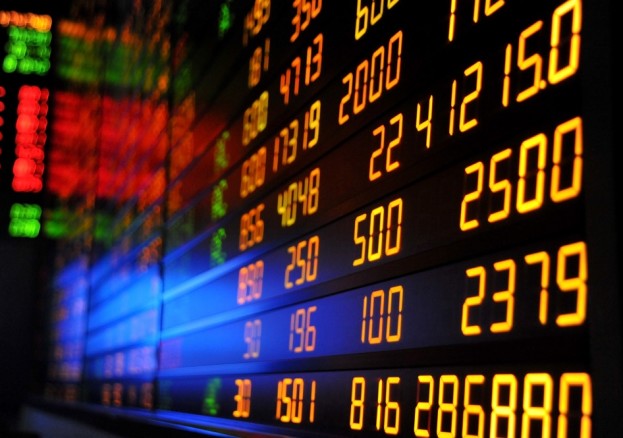
Money is made through trading margins, fees and speculation of market movements. If working on the trading floor, you might specialise in one of many financial products:
- Shares (also known as stocks or securities) from companies listed on the Stock Exchange or fund units.
- Fixed-interest bonds – loans issued by a government or company, which pay interest.
- Flow & Sales futures and options (also known as derivatives), which involves buying and selling commodities, securities and derivatives in secondary markets in order to make a profit through pricing differences – for instance commodities like oil, wheat or sugar.
- Foreign currencies, which involves ‘speculating’ on whether the price of a currency will rise or fall in order to make a profit through pricing differences. Many trades on the FX market are not in the actual currencies, but are traded as derivatives.
- Gilts – government bonds issued to raise public funds.
There are three main types of traders:
- Market traders buy and sell products on behalf of clients
- Sales traders deal directly with clients. They take instructions, place orders and advise clients of market developments and new financial ideas.
- Proprietary traders actively trade stocks, bonds, derivatives, commodities, or other items with their organisations’ own money as opposed to their customers’ money, attempting to generate revenue for their employing bank out of market movements.
Anyone working in trading must be ethical and professional, adhering to regulations set by the Financial Services Authority.
Tasks
- Monitoring stock market performance
- Monitoring incoming electronic trade instructions
- Processing or executing trades as per client instructions, either by telephone or online
- Analysing research compiled by investment analysts to identify market opportunities
- Advising fund / investment managers and stockbrokers on significant changes in market and recommending buy / sell actions
- Deciding on the products to buy and sell, using careful judgement and research to try and predict how the markets are likely to move
- Purchasing new share issues
- Preparing reports to summarise trading activities
- Ensuring details of any problems or delays in processing instructions are reported promptly to the relevant authority
- Regularly monitoring global economic and political developments that can affect prices
- Constantly networking to maintain strong relationships with analysts, investment managers and brokers
- Compliance with legal requirements, industry regulations, organisational policies and professional codes.
Skills
- Quick thinking and ability to perform under pressure
- Accurate and excellent attention to detail
- Swift reactions to changing market conditions
- Good analytical skills, with the ability to digest and summarise multiple sources of information
- Accountable for actions and decisions
- Resilient and ability to operate in a lively, fast-paced environment
- Self-confident
- Discrete and ethical
- Well-organised
- Outstanding business communication and interpersonal skills
- Articulate, clear communicator
- Strong client service ethic
- Excellent IT and numeracy skills
- Driven to work in a team setting
Useful Knowledge
A new entrant will not always be required to have this knowledge. Employers usually provide training to acquire skills for:
- Broad knowledge about securities and equities markets and services, with detailed knowledge relating to the specific area you are trading in
- Specialist knowledge relating to specific securities products, such as derivatives, bonds and funds, and secondary trading markets
Entry Qualifications
The main route into trading is through a formal graduate programme. Some traders progress from investment analysis or stockbroking roles. Proprietary trading is a position that experienced structurers or traders progress into. Employers will require entrants to be numerate and typically ask for a 2.1 degree. Any degree discipline may be accepted, but some employers prefer a management, business, economics, financial or numeracy orientated subject. Each employer specifies exact academic requirements and preferred subject.
Professional Qualifications
Some trading is execution-only. You will however have to pass an Appropriate Qualification if you give investment advice to retail clients about derivatives and deal on the basis of that advice. This is because advising retail clients is a regulated function.
- Chartered Institute for Securities & Investment (CISI) Level 4 Investment Advice Diploma (Private Client Route) and Masters in Wealth Management
- CFA Society of the UK (CFA UK) Investment Management Certificate (IMC) and CFA Level 1 Qualification
- Fellow or Associate of the Faculty or Institute of Actuaries
- Manchester Metropolitan University BA (Hons) Financial Services, Planning and Management
These qualifications meet the Financial Services Authority (FSA) full qualification requirements up to and after 1 January 2013. Please contact the FSA on 0845 606 9966. Traders may progress towards more advanced professional qualifications, such as:
- Chartered Financial Analyst (CFA) qualification (available through CFA UK)
Increasingly, traders, especially in propriety trading, have a postgraduate qualification, such as the globally recognised CFA or a Masters in business administration (MBA). CISI also offers a Level 7 Masters in Wealth Management.
Salary
A trainee trader can expect to earn an annual salary of approximately £30,000. When fully qualified, and with the right experience and skills you could progress to earn in excess of £100,000 per annum. This does not include potential bonuses and additional benefits. Salaries may vary based on location and employer.
Trends
As long as there are commodities, securities and derivatives to buy and sell, traders will be needed. Market activity will always fluctuate in line with economic conditions, as will jobs of this nature. Fund managers, investment firms, private and retail banks, insurance companies and pension funds employ traders. FX traders work predominantly for banks and fund managers, propriety traders for wholesale banks and brokerages. London is where the large percentage of trading jobs are located. Trading is a universal investment language and many investment banks have international divisions in key financial centres, such as New York, Tokyo and Sydney, and in the main European centres of Paris, Frankfurt, Milan and Madrid.
